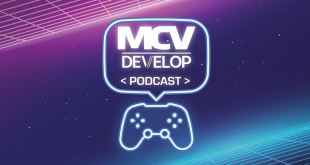 Every month an industry leader wraps up MCV/DEVELOP with their unique insight. This month, we speak to David Amor, CEO of Playmint.
Every month an industry leader wraps up MCV/DEVELOP with their unique insight. This month, we speak to David Amor, CEO of Playmint.
How did you get started in the games industry?
I started testing games and making tea back in 1990. It was the 8-bit console, 16-bit computer era.
You’ve mentioned that your time working with Bullfrog on Dungeon Keeper 2 was a career highlight. Assuming you’ve had quite a few others since, where does it rank?
Dungeon Keeper 2, along with many other Bullfrog titles, were a load of fun to work on. There were an amazingly talented group of people trying out new ideas. Along the way you wondered where the games were going to be amazing or whether we’d explode before we reached the finish line. Sometimes the former, sometimes the latter as it turned out. As an achievement it’s definitely up there, but as anyone who’s worked in games for a while will tell you, there are all kinds of highs for all kinds of reasons.
Your time with Computer Artworks corresponds with the release of The Thing, which was ahead of its time in many ways. How do you look back on that game – especially with it being unavailable since and consequently largely forgotten?
The Thing was a great game and is something of a fan favourite. I can’t take too much credit as I joined towards the tail end.
Probably the game you’re most synonymous with is Buzz!, which along with Wii Sports helped take gaming into the mainstream. How do you look back on that period and the series in particular?
We had a lot of fun with Buzz. The thing I look back on is the fact that it took the games industry such a long time to realise that the market was bigger than teenagers in their bedroom – Singstar, Buzz, EyeToy and Wii all showed that anyone will play a game if you present them with the right experience. It taught me such a lot and we had a pretty wild time.
As smartphones became evermore dominant in peoples’ lives you continued to innovate in the realm of casual gaming. What was the appeal?
I like trying new things in the games industry. When 2bn players arrived in the form of mobile gamers, that seemed like too big an event to ignore. I like learning new things and mobile offers a whole new way of thinking about games production: new play patterns, new monetisation, new marketing and new retention mechanics.
You established Playmint in 2021, in order to utilise blockchain technology and capitalise on the trend for NFTs, which is still a controversial area for many within the industry. How has the noise around NFTs changed the discussion around web3 adoption?
An NFT is a technology primitive in the same way as a webpage is a technology primitive; it really depends on what you do with it. It seems clumsy to assume that all games that use blockchain or NFTs are exploitative in some way, although I acknowledge that it can be hard to read past the headlines. To me, it’s the most interesting technology that’s come to the games industry in years.
Have you seen a shift in hearts and minds in recent months (with regard to NFTs, etc)?
I don’t think we’ll see a shift in attitude to blockchain games until there are enough blockchain games that demonstrate what you can do that you couldn’t do without it. We know we can build a kind of game that hasn’t been possible before, but talk is cheap!
AI is the new industry boogeyman, it seems. What’s been your view on how things are developing in that area of the industry?
The use of generative AI in games is fascinating. Is it a boogeyman? If it is, then I’m happy to embrace it. There are pretty clear use cases that facilitate game production but I think I’m more interested in what new experiences it can create for players. That’s a little more embryonic at this stage, but I’m sure there are some talented game studios cooking things up at this very moment.
You are preparing to speak at Develop:Brighton this year, on the subject of VC funding. Why is it a subject that matters?
For 33 years I’ve asked people for money to make video games in one form or another. Different game verticals; different sized companies; different countries. One of the anomalies I’ve noticed is that few companies in the UK use venture capitalist funding. Go to the Nordics or to California and it seems the predominant form of funding, where founders maintain control and IP, but generally in the UK it’s most frequently project financing of one kind or another. There’s no right and wrong way of getting funding, but having had good experiences with venture capital for the last ten years I hoped it would be useful to share what I’d learned in a no-BS, developer-friendly way.
What else are you looking forward to at the conference this year – apart from air conditioning?
I understand Justin Glibert will be speaking, who I’ve found to be inspiring. I’ll get my nose into the rest of the schedule next month!
Having established and managed a number of studios over the years, what have been the main lessons you have learnt?
I’ve learned that the canvas for the kind of games you can make is larger than you imagine. If you’d asked me what a videogame was back in 1990 then I’d have given you an answer that was way narrower than what I now know to be true. I’ve made hardcore RTS games, party games, hyper-casual mobile games, blockchain games and a lot in-between – very different games for very different audiences.
Are you hopeful for the future of the games industry and where predominantly does that future lie?
What is the future for the games industry? I’m very happy to say that I have no clue; it’s one of the things I like most about making games.
—

Develop:Brighton 2023 will take place between July 11, 2023 and July 13, 2023 this year at the Hilton Brighton Metropole. If you’d like to book passes to go, a range of options are available at www.developconference.com
As an MCV/DEVELOP reader, you’re entitled to an additional 10% discount on tickets with our promo code, ZLECKS.

 MCV/DEVELOP News, events, research and jobs from the games industry
MCV/DEVELOP News, events, research and jobs from the games industry




